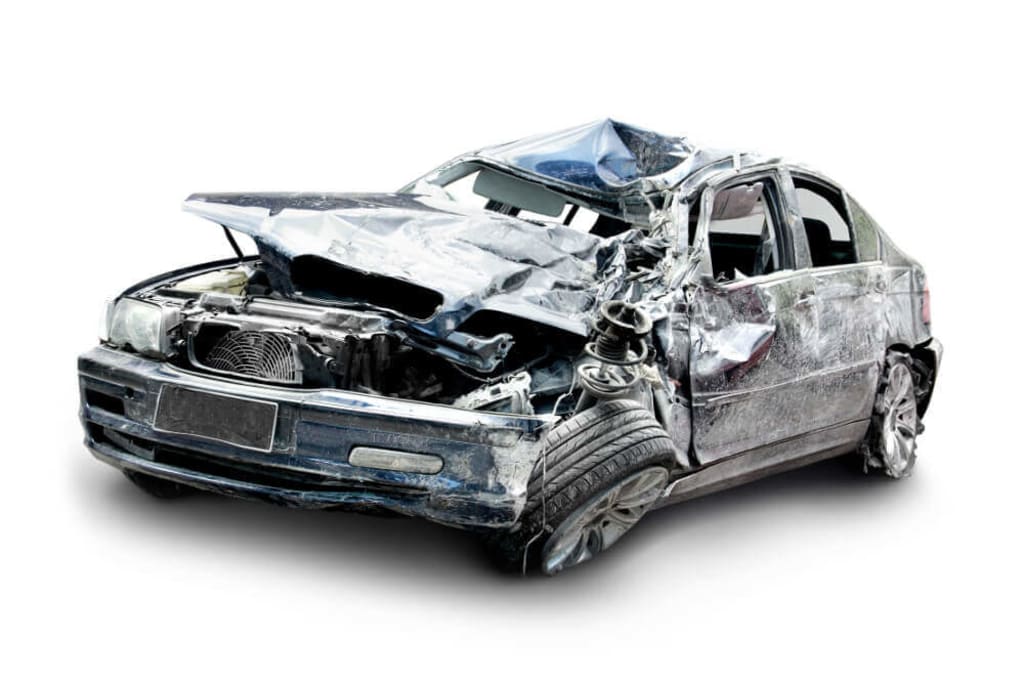6 Reasons Why You Need Comprehensive Auto Insurance Cover for Your Car
If you don’t want to take multiple covers for your car you can buy one insurance cover for a collection of multiple related and specially defined problems.

Choosing the right insurance coverage for your car can be overwhelming, particularly because of the many coverage options available today. Some covers are optional, others are legal requirements, but they all cover an important part of auto insurance. If you don’t want to take multiple covers for your car, however, you can buy one insurance cover for a collection of multiple related and specially defined problems. That cover is known as the comprehensive auto insurance.
This post highlights the six major instances where comprehensive auto insurance cover comes in handy:
1. If Your Car Is Stolen
Whenever a car is stolen, the worst case scenario—which is actually the most probable scenario—is that the car will never be recovered. Statistics show that more than 54 percent of stolen vehicles in the USA are never recovered.
The best case scenario, on the other hand, is that the car will be recovered, but some of its expensive parts will be missing. In both scenarios, a comprehensive auto insurance cover ensures that you get back on the road with a car of the same monetary value as the one that was stolen.
What should you do when your car is stolen?
Upon realizing that your car has been stolen, the first thing you should do is to file a police report. This is important for two reasons: First, so that its recovery search can commence immediately and second, so as to validate your insurance claim. Ensure that you include in the police report the exact place where & the approximate time when the car was stolen. Other important details include its recognizable features and its Vehicle Identification Number (VIN).
Please note that hiding information that can help the police recover your car can be interpreted as insurance fraud and will give your insurance provider a reason to deny you compensation.
With the police report filed, the second step is to file an insurance claim. It is worth noting that comprehensive auto insurance only replaces your stolen car by paying you its actual cash value (ACV), and not by buying you a brand new car. When calculating the car’s replacement value, the insurer considers its age, mileage, accident history, and general physical condition right before it was stolen. If it is recovered with minor damages, the insurer pays for the repair costs up to the condition it was in before it was stolen. You should make a point of checking your car’s approximate value from a reliable vehicle pricing sites before filing the insurance claim.
2. If Your Car is Damaged By Fire
Your car’s propulsion system uses highly-combustible gasoline or inflammable lubricants such as engine oil. That’s without mentioning other potential fire causes such as the car’s electrical wiring malfunctioning or the engine overheating. You, therefore, can never rule out the chances of the car accidentally bursting into flames. You need to safeguard your car against fire with a comprehensive auto insurance cover.
If your car is destroyed by fire, you should first contact an emergency agency so that they can respond to the fire. Also make sure that you obtain a fire report from them as it will validate your insurance claim. It is only after doing so that you contact your insurance provider to claim compensation.
3. If Your Car Is Damaged After Colliding With an Animal.
Think of a case where you are driving at top speed and then out of nowhere, a wild animal jumps right in front of your car. It could be a dear, a cow, a dog, a cat- you name them! Which other option will you have other than to run it over and then deal with the consequences later? The innocent animal could die, unfortunately, and your car will be damaged to an extent dependent on the animal’s size and your car’s model/speed. Well, it might not your fault but the damage will be done nonetheless. And, sadly, animal collisions precipitate expensive repairs which can be as high as $10,000 if there were injured passengers.
You are probably wondering why you need comprehensive auto insurance in this case, yet you already have a collision insurance coverage. Well, collision insurance covers cases where your car collides with a moving car, rams into stationary objects such as trees & walls, or crashes into a ditch. It, however, doesn’t cover cases of animal collisions and other car accidents that are beyond the driver’s control. Insurance providers categorize such accidents as “acts of God” and place them under the comprehensive auto insurance.
4. If Your Car Is Damaged By Floods.
Flooding is also an “act of God.” Even if you don’t live in a high flood-risk area, you can never be too sure that your car will never be caught up in floods. As a matter of fact, data collected by the National Flood Insurance Program shows that of all flood insurance claims, 20 percent are filed by people living in low flood-risk areas.
So, what happens when your car is carried by floods?
If your car gets submerged in flood water, the water enters the engine cylinders via the engine’s air intake. This can corrode the engine, damage the computer modules, or damage vital electrical parts. Basic insurance plans do not cover such expensive repairs which mean that your car will be considered a total loss, not unless you have comprehensive auto insurance in place.
What should you expect from your flood insurance claim?
After filing a flood insurance claim, your insurance provider will take the totaled car and its title, and then compensate you with another car of approximately the same value as the one you lost to the floods. If you can’t find your car after the floods, liaise with the police and your insurance provider to find it before filing the insurance claim.
Pro tip:
You can avoid a total loss situation by not starting your flood-damaged car until it’s dried and inspected by a professional.
5. If Your Car Is Destroyed By Adverse Weather
Bad weather seasons—read winter—are the worst seasons for car owners. Even with the best beam headlights, all-season tires, and driving at the lowest speed, sometimes you are unable to avoid car damages. Tornados, falling tree branches, and hails seem to always find a way of destroying your car.
Such accidents are part of “acts of god” as well. Many people choose to avoid the road during bad weather, which is okay, but that’s not enough precaution. Remember that even when not on the road, a hail ball can fall on and destroy your parked car. If you have comprehensive auto insurance, your insurance provider will in such a case repair the car and if it is totaled, replace it.
6. If Your Car Is Vandalized
You probably have property damage liability insurance, and so you think you are good to go. What you might not know is that this cover only compensates properties vandalized by your car. It does not cover repairs that precipitate from your car being vandalized by a third party. The good thing is that if your car is damaged in an act of vandalism, comprehensive auto insurance cover will pay for such repairs or give you a check for another car (ACV).
What should you do in case your car gets vandalized?
In case your car is vandalized, you should take pictures of it, file a police claim as early as possible, and then file for an insurance claim. Also remember to keep your car safe from more vandalism as the insurer can reject your claim on the grounds that you intentionally subjected it to harm.
Conclusion:
For every insurance claim, the insurance provider will always require you to pay an amount known as “deductibles” first before they can compensate you. This amount can be as low as $500 and as high as $2000 depending on your auto policy declarations. What that means is that if the damage repairs that you wish to claim from your insurer are cheaper than your set deductibles, you would rather pay for them from your pocket instead of filing the claim.
Also note that the value of comprehensive coverage decreases with the age of your car. If it is too old, it would be better if you saved your money for a new car rather than pay for insurance coverage.






Comments
There are no comments for this story
Be the first to respond and start the conversation.